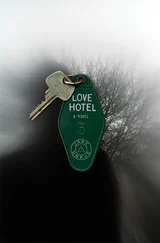MAE WEST
I only read biographies, metaphysics and psychology. I can dream up my own fiction. 2
Herr K kissed Dora on the lips. Her father said she’d dreamed it up. Freud said she’d dreamed of it. Dora coughed, stopped breathing, suffered from sore throats, talked herself hoarse and finally, dried up.
Mae West was never a star of silent movies. Paramount offered her a contract in 1932 at the unusually advanced debut age of thirty-nine. She’d already made her name as a stage actress, and as the writer and producer of risqué vaudeville. Her first show was called “Sex.” Sex was her appeal, but she was never exactly sexy, though she talked and wrote about sex, and she looked like sex. She was a sex symbol. And she wasn’t exactly funny either, just funny peculiar. Her jokes are delivered flat, aggressive, knowing. What could have been funny understated is hammered home. Her jokes all sound like something you’ve heard before, something she’s told six nights a week and twice on Saturdays. They sound like an acknowledgment of a joke, a repetition, an imitation. And that’s what makes her wonderful. If her jokes had been funny, West would have been lame.
The lips sofa in the lobby is big, as big as Dalí’s, but doesn’t look exactly the same shape. Its texture is spongy. It gives. I sink entirely inside the mouth. I might be swallowed.
To maintain his personal comfort, Dalí licensed editions of his sofas but, now, imitations are unlimited. He also sold licenses for “monumental” and medium-size “museum versions” of sculptures based on his paintings, which had originally been no more than 2d. Due to the proliferation of unlicensed editions, and of copies, major auction houses are reluctant to sell Dalí sculptures. Most will recognize only those cited in Robert and Nicolas Descharnes’ catalog, “The Hard and the Soft,” although it is incomplete and increasingly out of date. As a result, some authentic pieces go unrecognized and imitations have sold at high prices.
Mae West’s sassy, aggressive style had few, if any, imitators. There were even rumors that she was a female impersonator. After a number of successful pictures in the early 1930s, her career began to go west. In Klondike Annie , and then Go West Young Man (both 1936), the Hays Movie Production Code made sure she shut her dirty mouth.
FREUD
Linguistic usage follows the same line in recognising the buttocks as homologous to the cheeks, and by drawing a parallel between the “labia” and the lips. 3
Even with their mouths shut, both Dora and West looked just like their bodies.
And that’s what matters.
I sit gingerly on the Mae West sofa, in the teeth of some kind of uncertainty.
The library (which is also the lobby)
I have a friend who had a job creating libraries for hotel lobbies.
A library is not something usually found at home, but in a school, a university, or in a dedicated municipal building. The books in the library in this hotel do not matter. It only matters that the books are there. They are a holiday affair, and to read on holiday is so often to read lightly, though many of the books are thick and heavy. These are the casualties of old relationships, of flings between the sheets. Abandoned, only the first pages dog-eared, they show no evidence of commitment. The only glossies: the brochure for the hotel set open on the receptionist’s desk, and brochures for other hotels, thickly funded by hotel ads so that, like the therapist’s office, this hotel contains many other hotels. To step into the hotel lobby is to step not into one perfect hotel but into many. The effect is overwhelming.
HEIDEGGER
I am never here only.
What did he mean, Dr. H? That I can only visit a hotel I have previously imagined? He meant that we do not dwell in our environments. Our thoughts dwell also elsewhere. Our environments always allude to something else. This is style. Still, it is delightful to read of hotels from home, perhaps even (or especially) if a visit to a hotel is not in prospect. It is not, perhaps, so delightful to read of home from hotels, or of other hotels, from the hotel in which I am staying.
Dora dreamt that her father was dead. At home she, unconcerned, read from a thick book open on a desk, displayed like a hotel brochure in a lobby. Freud believed it was a dictionary.
FREUD
Dora had created for herself an illness that she had read about in the dictionary, and had punished herself for reading it.
I have read of hotels and created a cure for myself in what I found there. Hotels are also written, don’t think I don’t know it: I have had a hand in writing them, not for these lobby brochures, but for others. I have written in an approved style, adding the odd tweak but unable to break the rubric. Hotels, I know, feed on their readers’ presumed wish to have hotels presented in no other style than that of a hotel brochure — a performance of the performance I am not only witnessing but also participating in.
The switchboard
The switchboard is the link between the hotel and the not-hotel. But it is also the barrier.
Do hotels have switchboards anymore? They must. You can still call room to room, and press 9 for an outside line (which costs!). Now everyone has a mobile, there must be easier ways of being connected.
In her dictionary dream, Dora dreams she is at the train station going from, and to. She remembers either end of her journey. She does not remember the connections.
FREUD
Ambiguous words are like switches or points at a railway junction.
I can talk to you here in the hotel, and you will listen — not via the switchboard but the WiFi, that sometimes costs extra and sometimes does not — but I cannot talk to you about anything that matters. Outside the hotel I talk, but you do not listen, or I say things ambiguously, perhaps.
When I am in the hotel, you say things to me that I love. Sometime you ask me to come back. You can only ask me when I am away.
The stairs (The elevator)
I Going up
The stairs in the lobby are impressive and central.
Or, alternatively (in some small hotels) the lobby is under the stairs.
Everyone looks at the stairs, but most people use the elevators, which are hidden behind a screen, as though elevation were embarrassing.
Freud associated dreams of climbing stairs with the sensation of sexual exertion. At the time he treated Dora, Freud’s clinic was upstairs from his home, which was in the apartment beneath.
I don’t know if his building had an elevator.
DORA
(Describes her dream)
I see myself particularly clearly going up the stairs.
(I have tripped up various hotel stairs, evaded reception, the parlor plants, the stair rods, the emergency lights, the fire extinguishers, laughed, been shushed, laid myself down on single beds, alone or accompanied. if not in body at least in mind: one man I kissed goodbye on the street invited me back to his hotel. and there were still others to whose hotels I would surely have gone, if only I had known where they were staying.)
(Did) FREUD (say to DORA)
Will you come up sometime, and see me?
(Where was Mrs. Freud all this time? One floor down, perhaps.)
DORA climbs the stairs to Freud’s consulting room.
I climb the stairs to my hotel room.
II Going down
In another dream, Dora dreamt there was a fire at her house:
DORA
We dash downstairs and, as soon as I’m outside, I wake up.
When I go down in a lift, I get the same sensation in my stomach as when I’m coming.
Freud says nothing about sex and going downstairs.
In case of fire, the hotel notice warns me, do not take the elevator.
Читать дальше












